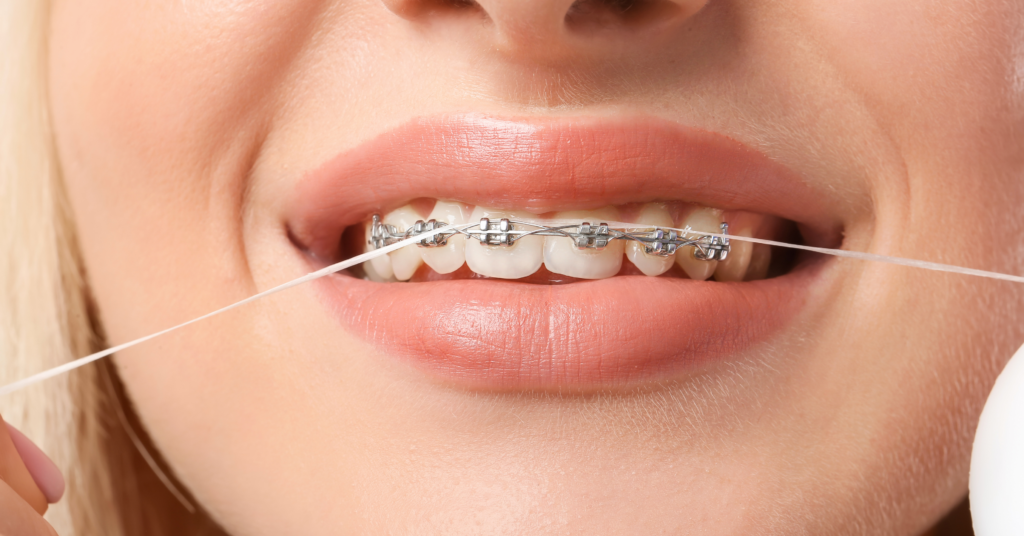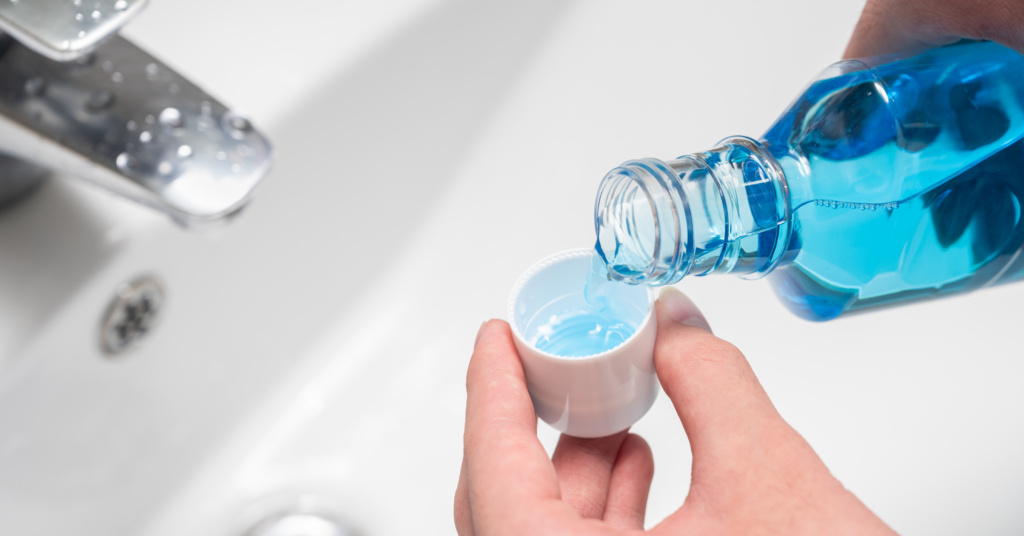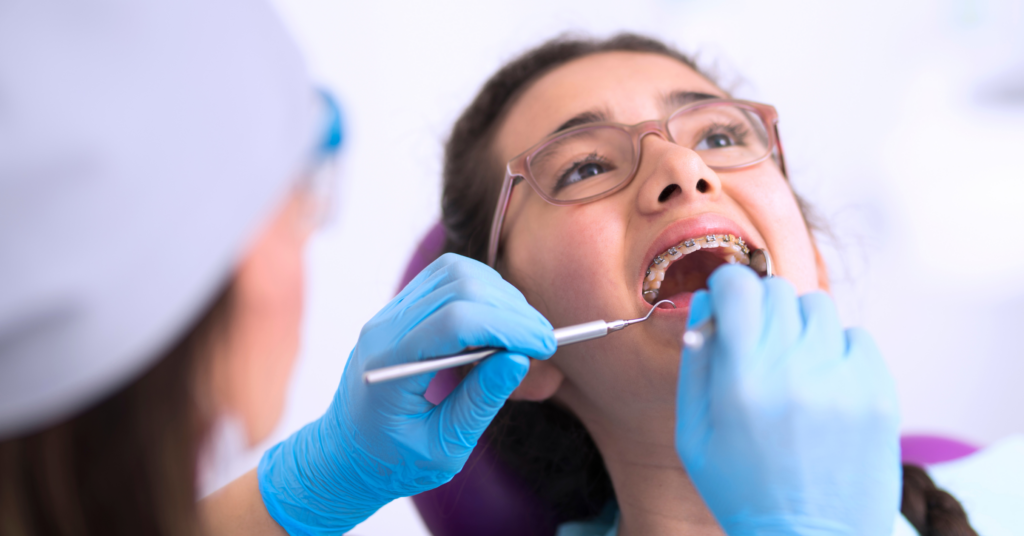Oral Hygiene For Braces


If you are undergoing orthodontic treatment, oral hygiene becomes even more important. Braces, wires and bands can trap food particles, bacteria and plaque which increases your risk of tooth decay and gum disease.
Keeping your teeth clean while you have braces can make all the difference in your treatment experience and smile after braces are removed. Here are 5 tips for maintaining healthy teeth and gums during your orthodontic treatment:
Brush After Every Meal
If you want to keep your teeth and gums healthy, you need to maintain good oral hygiene habits. This includes brushing your teeth regularly, flossing, and eating a balanced diet. It also means maintaining a healthy lifestyle and visiting your dentist regularly.
It’s common knowledge that eating certain foods can eat away at your tooth enamel and contribute to cavities. Luckily, your body produces saliva to help neutralize these acids and wash them away.
When you eat, food particles stick to your teeth and later become home to bacteria or plaque. This plaque creates acids that attack your tooth enamel and can cause cavities.
The best way to prevent this damage is to brush your teeth after every meal. You should wait at least thirty minutes before brushing to give your teeth and mouth time to replenish its natural defenses against acid.
In addition to this, you should brush your teeth before bed. This helps remove any leftover food or sugars from the day’s meals that can be eaten by oral bacteria when you sleep.
It’s important to understand that oral bacteria are microscopic creatures that feast on sugars and carbohydrates that we consume during our meals and snacks. They can linger in our mouths overnight and grow to over 100,000 bacteria in a matter of hours, if we don’t brush them away before going to sleep.
When you don’t brush your teeth before you go to bed, your bacterial population is able to grow and multiply, which favors the growth of plaque. To ensure effective cleaning, it’s crucial to replace your toothbrush regularly, as worn bristles are less efficient at removing plaque and debris. In turn, that plaque can cause gum disease and other dental issues. It can even lead to tooth loss in some cases.
Floss at Least Once a Day


Brushing and flossing are two of the most important tools you have for maintaining your teeth and gums. Both will help reduce your risk of tooth decay and gingivitis.
The American Dental Association recommends that you brush your teeth twice a day and floss at least once a day to remove plaque, bacteria, and food particles from between your teeth and below the gumline. Flossing is an especially important practice for people who wear braces as the spaces between their teeth are harder to clean with a toothbrush. Besides flossing, dental sealants are another preventive measure that can help protect your teeth from decay, especially in hard-to-reach areas.
To floss, take a piece of floss about 18 inches long and tie it securely in a circle. Place your fingers inside of the loop and use your thumb to guide the floss between the upper teeth.
Gently glide the floss between your teeth, rubbing it up and down on each side of the tooth. Don’t push the floss in between your gums, as this can cause abrasions or damage them.
As the floss enters the space between your teeth, bend it at the base of each tooth to form a “C” shape. Then, gently slide the floss up and down between each tooth, removing any plaque or food that may have been stuck in the small crevices between your teeth.
When you’re finished, rinse your mouth out with water. This will swish any remaining stray pieces of floss and remove any excess debris that may have been caught in your braces.
Flossing is not only essential to healthy teeth and gums, but it also freshens your breath! If you’re not a fan of flossing, consider using a mouthwash to replace it.
Regardless of your oral hygiene routine, it’s a good idea to check in with your orthodontist at regular intervals. They can assess the health of your teeth and gums and recommend if you should start flossing more often. They can also make sure your teeth and gums are in the best possible condition to avoid problems in the future.
Use a Mouthwash


Mouthwash is an adjunct to kill bacteria and remove plaque before you brush and floss. It also has the potential benefit of leaving your breath fresh and clean even thought the effects is short lived.
Using a mouthwash is useful in maintaining good oral hygiene, and it’s especially important for people who are wearing braces. Fluoride containing mouthwashes will benefit patients with braces.
You can also use a mouthwash after your brushing routine, to help remove any remaining plaque and bacteria that may be trapped on your teeth or around your braces. Most mouthwashes include fluoride, which strengthens your teeth and gums and protects them from decay.
Be sure to choose an Alcohol-free mouthwash because they won’t irritate your gums and damage your brackets or wires. Using a mouthwash can also help improve your breath; for more tips on maintaining fresh breath during orthodontic treatment, read our article on Saying Goodbye to Bad Breath – Tips For Fresh Breath.
Eat the right foods
Avoid Eating Sugary Foods and Drinks
Eating a diet high in sugar is one of the leading causes of tooth decay and gum disease. The bacteria in your mouth feast on the sugars you eat, producing excess amounts of acid which damages your teeth.
You can minimize the damage caused by consuming too much sugar by following the guidelines below.
Avoid foods and drinks that are high in sugar or carbohydrates, such as candy, ice cream, soda and juice. Instead, try to choose whole grains and fruits that are low in sugar or contain no added sugars at all.
Be sure to read the labels on your food and drink products. Look for items that are labeled as “no added sugars.” Some of these include agave nectar, stevia and honey.
Similarly, you should avoid foods that are highly processed and packed with starch or refined carbs. These can be especially hard to chew and get stuck between your teeth.
In addition, avoid foods and beverages that are high in acids. These are the ones that will erode your tooth enamel and cause cavities.
If you have to eat sugary foods, try to do so at mealtimes and limit them to occasional treats rather than everyday snacks.
Also, try to swish some water after eating or drinking any food or beverage with sugar in it. This will help rinse away the sugars and bacteria that remain on your teeth. Choosing the right toothbrush and toothpaste is essential for maintaining good oral hygiene during orthodontic treatment; learn more in our article on The Importance of Choosing the Right Toothbrush and Toothpaste.
It’s also a good idea to avoid foods and beverages that are too hard to chew or are extremely sweet. This includes ice, chewy candy, fruit juice and sports drinks.
Visit Your Dentist Every 3 or 6 Months as prescribed


Your dentist can catch tooth decay and gum disease before it becomes serious, so regular check-ups are important for everyone.
The American Dental Association recommends a dental check-up every six months to keep your teeth and gums healthy. If you feel anxious about visiting the dentist during your orthodontic treatment, our article on Dental Anxiety: How to Overcome Fear of the Dentist offers helpful tips and strategies to help you feel more comfortable. Braces wearers may benefit from a more frequent interval of hygiene visits. The dentist will check your teeth for decay and look for areas where the gums are weak or loose, which can lead to gum disease.
Preventive dentistry has become the hallmark of modern dental practice. It combines routine dental care with preventative treatments, such as fluoride and sealants. Early detection of decay leads to early treatment and can avoid expensive procedures like fillings, root canals, crowns or extractions down the road.
If you’re ready to take control of your oral health and achieve the perfect smile you’ve always wanted, our dedicated team of White Rock Dentists are here to help. We offer comprehensive orthodontic care and personalized treatment plans tailored to your unique needs. Our skilled professionals are committed to providing exceptional service and ensuring your comfort throughout the process. Don’t wait any longer to start your journey towards a healthier, more confident smile. Contact our dental office today to schedule your consultation and discover the difference our expert care can make in your life.